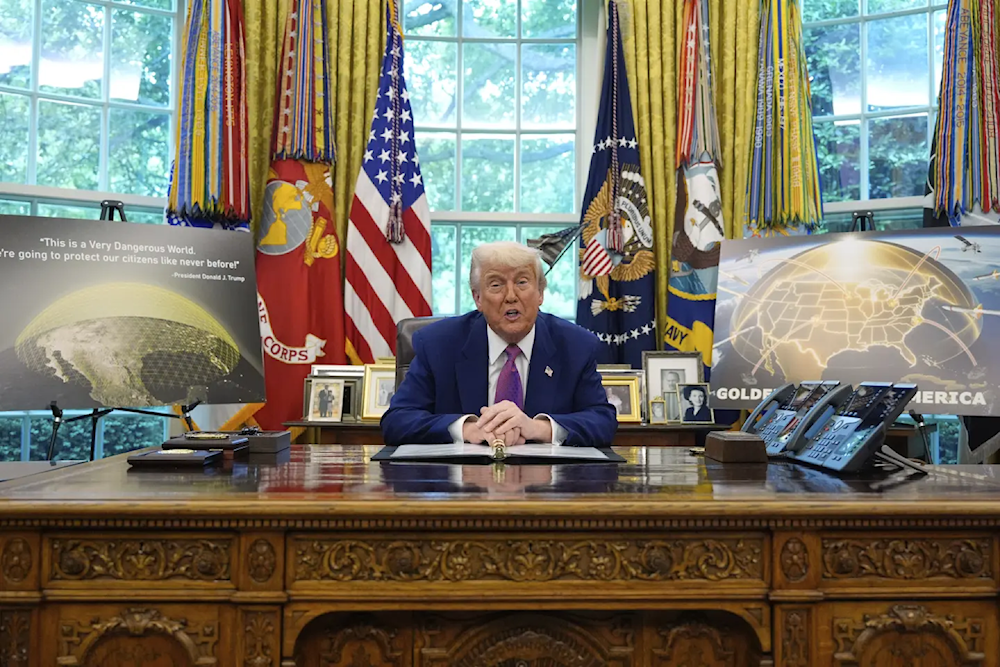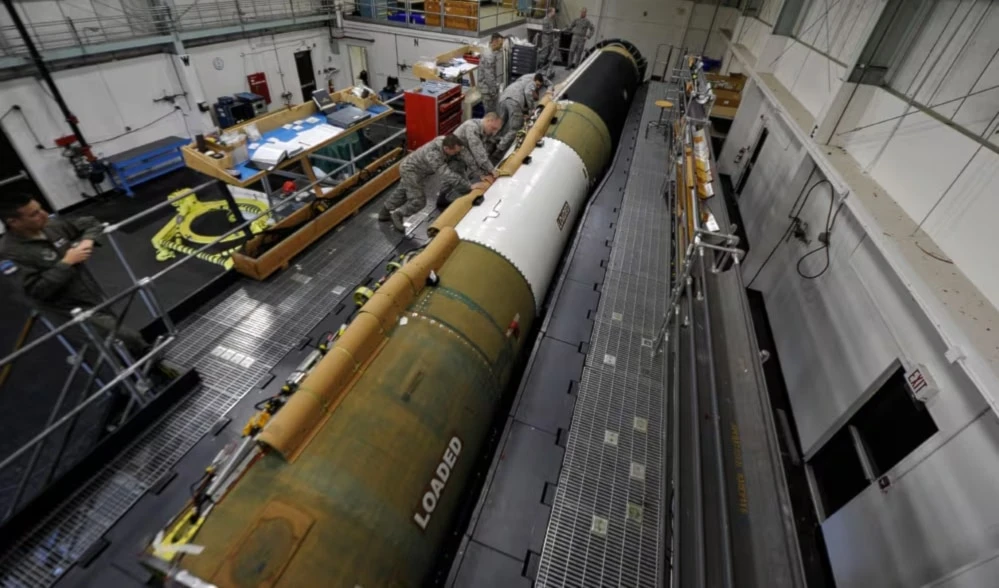Trump's trade war cost businesses $34bln, threatened 7mln jobs
A Reuters analysis shows Trump’s trade war has cost global firms over $34 billion in profits and caused supply chain disruptions, with losses expected to rise.
-

President Donald Trump speaks in the Oval Office of the White House, May 20, 2025, in Washington (AP)
US President Donald Trump's ongoing trade war has cost global companies more than $34 billion in lost sales and increased expenses, according to a Reuters analysis of corporate disclosures.
The figure, drawn from the financial reports of major firms across the US, Europe, and Asia, shows the deepening economic strain caused by erratic trade policies and continued tariff uncertainty.
The tally includes estimates from 32 companies in the S&P 500, three firms listed in Europe’s STOXX 600, and 21 companies on Japan’s Nikkei 225. Analysts say the real cost is likely multiple times higher, with many businesses still unable to fully quantify the long-term damage.
“You can double or triple your tally and we’d still say the magnitude is bound to be far greater than most people realize,” said Jeffrey Sonnenfeld, professor at the Yale School of Management.
All industries in hot water
Across sectors, from tech to auto, retail, and aviation, companies have cut or suspended profit forecasts, citing the unpredictability of Trump’s tariff regime. Major global players like Apple, Ford, Porsche, and Sony have slashed earnings guidance, while Walmart has declined to provide quarterly forecasts and warned of price hikes, triggering backlash from Trump.
Volvo Cars, one of the European manufacturers most exposed to US tariffs, pulled its profit forecast for the next two years. United Airlines gave conflicting projections, citing an inability to assess the macroeconomic impact of global trade tensions.
“If you take into account this uncertain world and you can’t guide anybody to a number, it’s safer not to guide,” said Rich Bernstein, CEO of Richard Bernstein Advisors.
Supply chains rattled, profits fall across sectors
Reuters found that 42 companies had already downgraded earnings expectations, while 16 had withdrawn guidance entirely. Corporate earnings across the S&P 500 are expected to grow just 5.1% per quarter through year-end, down from 11.7% a year earlier, according to LSEG data.
Industries hardest hit include automakers, airlines, and consumer goods importers, all of which rely on complex, multi-country supply chains.
Tariffs on aluminum, electronics, and key parts have pushed up assembly costs. Companies attempting to shift production to the US face significantly higher labor expenses.
Kimberly Clark, maker of Kleenex, reported it would incur $300 million in additional costs this year due to tariff-related supply chain disruptions.
Days later, it pledged to invest $2 billion over five years to expand US manufacturing, an amount not included in the $34 billion estimate. Similar moves were announced by Apple and Eli Lilly, both increasing domestic investment amid trade pressure.
Companies rethink investment as costs mount
Even food and beverage producers are feeling the pinch. Diageo, the maker of Johnnie Walker whiskey and Don Julio tequila, said it would cut $500 million in costs and divest assets by 2028, citing a $150 million annual hit from US import tariffs on goods from Britain and the EU.
“Tariffs could significantly drive up the cost of a nice night out, or even a cozy night in,” said Zak Stambor, analyst at eMarketer.
Amid ongoing negotiations with China and wavering US-Europe trade dynamics, companies are ramping up nearshoring efforts, reevaluating supply chains, and prioritizing market diversification.
But these efforts are themselves costly, adding to operational burdens at a time when inflation expectations are rising and consumer spending is under threat.
Analysts warn long-term fallout still unknown
While Trump insists tariffs will help close the US trade deficit and encourage companies to bring jobs home, the White House's approach has left global markets jittery.
"The United States ... has the leverage to make our trading partners ultimately bear the cost of tariffs," said White House spokesperson Kush Desai, defending the administration's stance.
Yet, the reality for global businesses is stark. On earnings calls for Q1, 72% of S&P 500 companies referenced tariffs, more than double the number in the previous quarter. Among STOXX 600 firms, 219 mentioned tariffs, up from 161. In Japan, the number rose to 58 from just 12.
With a US trade court recently blocking another wave of proposed tariffs, uncertainty persists. Companies remain in limbo, unable to confidently forecast or invest.
As Bernstein put it, “Corporations don’t have an awful lot of visibility about anything in the future.”
ILO warns Trump’s trade war may erase millions of global jobs
In related news, the United Nations’ International Labour Organization (ILO) has warned that Trump’s renewed trade war is set to cost the global economy millions of jobs this year, with the agency forecasting 7 million fewer new positions in 2025 than previously expected.
In a report released Wednesday, the ILO said only 53 million jobs are likely to be created globally next year due to slowing economic growth and heightened uncertainty tied to Trump’s escalating tariff regime. The analysis is based on IMF data, which recently downgraded global GDP growth to 2.8% from 3.2%, citing the ripple effects of US-imposed tariffs and deteriorating trade relations.
The ILO noted that roughly 84 million jobs across 71 countries are linked to US consumer demand, and thus increasingly vulnerable, with 56 million of those concentrated in the Asia-Pacific and another 13 million across Canada and Mexico.
Trump’s decision to hike import duties on goods like cars and steel, coupled with threats of “reciprocal tariffs” by July 9, has injected volatility into supply chains and hiring strategies.
“If geopolitical tensions and trade disruptions continue… they will most certainly have negative ripple effects on labor markets worldwide,” said ILO Director-General Gilbert Houngbo, warning that employers may grow more cautious in the face of prolonged unpredictability.

 6 Min Read
6 Min Read








